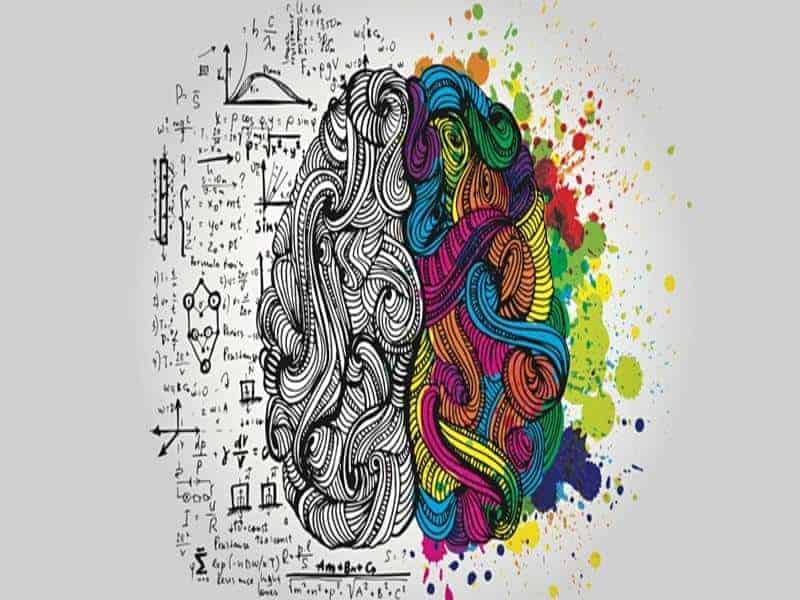Creativity as a Resource for Change

Creativity is part of our humanity. It strengthens our resilience, brings joy, gives meaning, and helps us find new ideas and connections. Yet even the thought of creativity can be triggering and polarizing. For some of us, it brings back childhood memories of school, family, or church when we felt embarrassed or ashamed that we couldn’t carry a tune, draw a straight line, or think out of the box, and that meant turning away from our potential. For others of us, creative spaces felt like the only places where we could be ourselves, and that restricted access to a feeling of belonging in the community. And then some of us may fall somewhere in between these two poles or have other feelings. Regardless, when we think of creativity, we’ve likely formed judgments like can and can’t, dull and brilliant, sane and crazy, uptight and eccentric, or serious and frivolous. We probably feel shut off in one way or another.
I had some access to the arts in school, and teachers encouraged me, but my family home wasn’t where I could develop my creative potential. Not surprisingly, as an adult, I’ve mostly turned away from or ignored my longings. When I think of the word creativity, I feel inspired, and I also feel thwarted and regretful. For me, the past painful and eventful pandemic year has awakened my neglected creative self. The disruption of my usual rat race allowed me to feel into what I want to do with my life and provided space for creative thinking and expression. The bittersweet feelings I have around creativity based on my own life story inspire me as an activist for all of us to reclaim our creative capacity. I know that creativity is a resource for well-being and change both personally and societally.
The mission of Karuna Training and Contemplative Psychology is to align with our open hearts and minds to awaken our inherent wisdom and potential.
We are currently offering introductory programs that provide an experiential taste of the two-year Karuna Training course that will start again next fall. The training is multifaceted, and the learning occurs in different modalities. The seminars and retreats include teachings and discussion, small and large group work, guided meditations, movement, and personal projects. The training also includes periods of creative play and expression. When I recall the many and varied Karuna situations I’ve been part of, there have been many times when students happily surprised themselves with their confidence and ease in natural expression arising in training exercises, free time during retreats, and projects. I recall the quiet space for people to feel what they feel. And I also remember laughing, crying, singing, joking, dancing, writing, journaling, collaging, photography, films, painting, collages, and clay.
In Karuna, we aspire to create a safe and supportive environment, a community where we are not afraid to be who we are and where we can dare to tell the truth and manifest our longings. The healing journey of opening up to aspects of ourselves is opening to our bright light that may have been hidden.
Central to the curriculum of Karuna Training is attuning to and deepening into the wisdom of the five elements in week-long programs at rural retreat centers. These programs train in accessing cross-cultural experiential knowledge of earth, water, fire, wind, and space. The retreats include contemplative and community activities that heighten each element’s experience, and ‘aimless wandering,’ walking, and opening one’s senses to immediate perceptions. Attuning to the five elements, aimless wandering, and noticing perceptions help Kaurna trainees open to self-existing creativity.
Everyday creativity is available to all of us. It opens us to ourselves, to each other, and to change. I will be discussing this at our next Karuna Live! Creativity as a Resource for Change on Saturday, June 5th at 2 pm Pacific /3 pm Mountain /4 pm Central / 5 pm Eastern, and I hope to see you there. Till then, I will leave you with these cues for everyday creativity:
Be mindful – Try meditation, be present with your experience as it’s unfolding now.
Don’t know – Be open and curious, don’t be a know it all
Awaken your senses – Smell, taste, touch, sound, and sight are gates to the vividness of now
Open to messages – Helpful information is coming to you from unexpected places
Un-schedule – Leave open time just to be
Take a walk – Feel your body, move through space, see what’s happening outside.
Do what you like – Let your affinities guide you
Try something new – Try anything, especially something you’re not good at
Work within a constraint – Make something using what’s available, recycled materials, or found things
Feel what you feel – Notice feeling or numbness, scan your body sensations
Enjoy life – Be open to beauty
Have a good laugh – Reclaim your sense of humor
Sleep on it – Let problems solve themselves while you sleep
Dream on it – Notice and jot down your dreams when you wake
Leave a Reply
You must be logged in to post a comment.